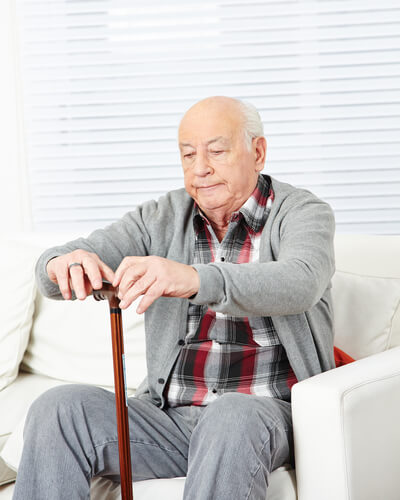 As we age we face the very real threat of falls and injury. A fall can take away independence and change a lifestyle for the worse. To prevent falls, we recommend considering the following information:
As we age we face the very real threat of falls and injury. A fall can take away independence and change a lifestyle for the worse. To prevent falls, we recommend considering the following information:
Risk Factors and Causes
A study done by the Aging Research of Hebrew SeniorLife (affiliated with Harvard Medical School) examined indoor and outdoor falls among seniors, looking for common causes and risk factors. Over 800 adults over the age of 70 were examined for a time span of two years. With this group, over 1000 combined falls were reported and recorded for research.
Outdoor Falls: Young and Active
The records showed that falls among seniors outdoors most often happened to:
- Educated Males
- Those who lived active lifestyles
- Often had better health than those who experienced indoor falls or none at all
For this study, 524 outdoor falls were recorded.
Indoor Falls: Inactive and Medicated
Common factors among those who fell indoors were more related to physical characteristics, such as:
- More heavily medicated
- Lower cognitive function
- Less active lifestyle
598 falls were recorded as occurring indoors among the 800 seniors observed.
Getting Healthy Exercise
To keep joints moving, muscles strong and the mind active, seniors should exercise on a regular basis. Balance and perception are common causes of falls, causing physical weakness and dizziness. Hebrews SeniorLife writes:
Research has found exercise to be an effective treatment at any age for all kinds of conditions from heart disease to diabetes. Furthermore, it is an effective preventive measure against future falls. Lack of exercise weakens muscle tone and balance, and exacerbates joint stiffness due to illnesses like arthritis. In addition, the isolation that comes from being housebound can lead to depression. It is easy to see how a fall can precipitate a downward spiral toward physical and emotional distress.
Setting Realistic Limits
Aging affects vision, muscle and mental attributes in every person, and seniors should live safe rather than sorry. It only takes one serious fall to drastically change an independent lifestyle to a disabled and limited one. Injury resulting from a fall can be very serious and treated as such. Limiting questionable tasks and increasing safe activity is important for maintaining optimal health in aging.
The Buddy System
Having a support system will help insure safety for a senior lifestyle. Regular check-ins and having assistance in performing commonplace tasks will alleviate some of the potential for falling. Though sometimes a difficult part of aging, accepting help and requesting support is important for maintaining senior independence.
Emergency Preparedness
A medical alert button can be worn for daily activity and can be used in cases of emergency. The point of a call button is for a senior to reach help when a fall occurs. This prevents injury beyond the initial impact; inability to get up often results in further stress, injury and lack of immediate care.